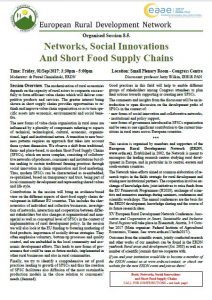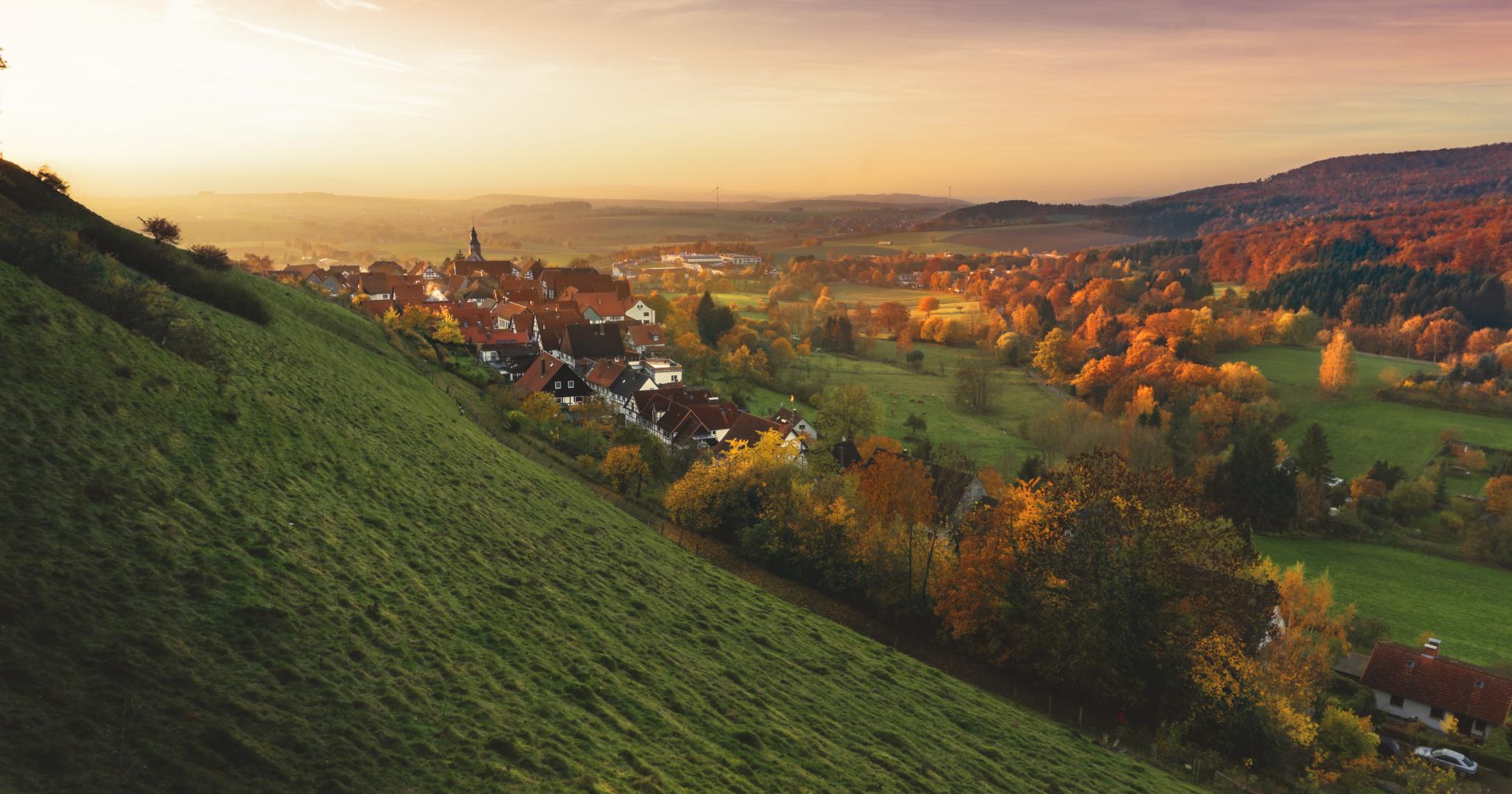European Association of Agricultural Economists 2017 Congress
Organised Session 8.5.
Networks, Social Innovations And Short Food Supply Chains
The session is organised by members and friends of the European Rural Development Network.
Time: Friday, 01/Sep/2017: 3:30pm – 5:00pm. Location: Small Plenary Room – Congress Centre, Via Parco Area delle Scienze (Campus), Aule delle Scienze Pad. 25, 43124 Parma (Italy)
Moderator: dr Paweł Chmieliński, ERDN
Discussant: professor Jerzy Wilkin, IRWiR PAN, EAAE Fellow
The session organised by members and friends of the European Rural Development Network.
 Session Overview. The modernisation of rural economies depends on the capacity of rural actors to cooperate successfully to form efficient value chains which will deliver competitive products and services. The greater interest being shown in short supply chains provides opportunities to rethink and improve value chain organisation so as to turn specific assets into economic, environmental and social benefits.
Session Overview. The modernisation of rural economies depends on the capacity of rural actors to cooperate successfully to form efficient value chains which will deliver competitive products and services. The greater interest being shown in short supply chains provides opportunities to rethink and improve value chain organisation so as to turn specific assets into economic, environmental and social benefits.
The new forms of value chain organisation in rural areas are influenced by a plurality of components referring to aspects of technical, technological, cultural, economic, organizational, legal and institutional nature. A transition to new business patterns requires an approach that takes into account these system dimension. We observe a shift from traditional, farm- and place-based, to modern Short Food Supply Chains (SFSCs), which are more complex, consisting of collaborative networks of producers, consumers and institutions but often seeking to sustain traditional farming practices through social innovation in chain organisation and food marketing. Thus, modern SFSCs can be characterised as re-embedded, re-spatialized, based on transparency and trust, being part of local community development and representing shared values and life style.
Contributions in the session will bring an evidence-based view on the different aspects of short food supply chains development in different EU countries. This includes the characteristics of individual and collective businesses, investigation of networks, interaction and cooperation between different stakeholders but also changes at organizational and managerial as well as conceptual level of SFSCs in the context of implementation of rural development policy. In the session we will also look at the EU funding to fostering marketing of food products. importance of socially driven strategies. They often emphasise voluntary, bottom-up processes and quality control, and are embedded in the local community and economic development efforts. This leads to new forms of governance that could be seen as future models, implemented in other rural businesses and also in rural communities.
Finally, we try to identify a comprehensive set of good practices leading to growth of SFSCs and thus the creation of SFSC facilitates also diffusion of the most sustainable production models in the close relation to consumers’ needs (demand). Good practises in this field will help to enable different groups of stakeholders among Congress attendees to plan their actions towards supporting or creating new SFSCs.
The comments and insights from the discussant will be an introduction to open discussion on the development paths of SFSCs in the context of:
– new forms of social innovation and collaborative networks,
– institutional and policy support,
– new forms of governance introduced in SFSCs organisation and be seen as one significant contribution to the current transitions in rural areas across European countries.
PAPERS:
- THE FOOD CHAIN IN THE RURAL DEVELOPMENT PROGRAMS OF THE ITALIAN REGIONS: A COMPARISON BETWEEN THE TWO PROGRAMMING PERIODS 2007-2013 AND 2014-2020
Piermichele La Sala, Mariantonietta Fiore, Francesco Contò
University of Foggia, Department of Economics, Italy
- HOW DOES EU SUPPORT SOCIAL APPROACHES TO FOOD MARKETING?
Anna Maria Augustyn and Gusztav Nemes
Groupe de Bruges, The Netherlands; Hungarian Academy of Sciences
- SHORT FOOD SUPPLY CHAINS AS A WAY FOR DIVERSIFYING FARMERS’ ECONOMIC ACTIVITY
Barbara Wieliczko, Marek Wigier, Paweł Chmieliński
Institute of Agricultural and Food Economics – National Research Institute, Poland
See: abstracts
Discussant: professor Jerzy Wilkin, IRWiR PAN, EAAE Fellow
Session Organisers:
- Paweł Chmieliński, ERDN and Institute of Agricultural and Food Economics – National Research Institute, Poland
- Anna Augustyn, Groupe de Bruges, the Netherlands
- Piermichele La Sala, University of Foggia, Italy
It is our great pleasure to announce that during the congress in Parma professor Jerzy Wilkin has beed awarded and installed as a Fellow of the EAAE! The Fellow Awards program of the European Association of Agricultural Economists recognizes professional excellence in agricultural economics. The main criterion for selection is a relevant and continuous contribution to the advancement of agricultural economics in Europe. The programme began in 2008 and currently Association has 16 Fellows. More information and the full list of EAAE Fellows on EAAE web site.



